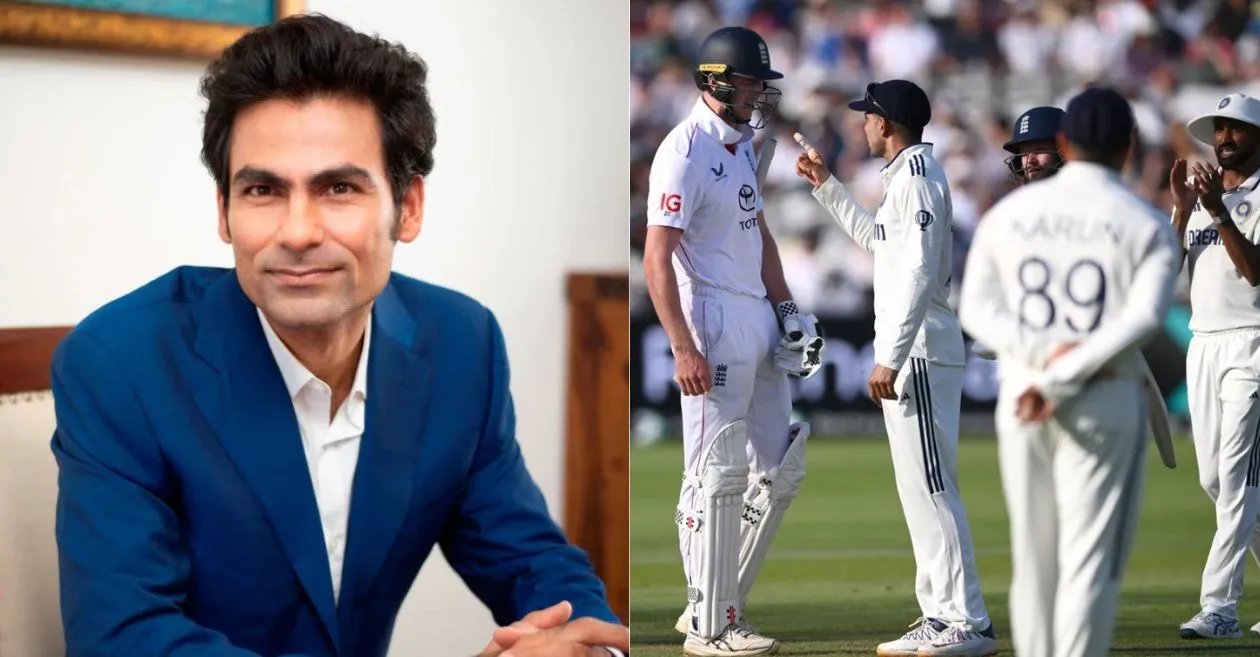Table of Contents
The third Test match between England and India at Lord’s became the focal point of intense drama and heated confrontations, with former India cricketer Mohammad Kaif calling out India captain Shubman Gill’s change in temperament. Following India’s narrow 22-run defeat, Kaif pointed to the fiery spat between Gill and England’s Zak Crawley on Day 3 as a critical moment that fueled England’s resurgence. According to Kaif, Gill’s aggressive outburst, which contrasted with the team’s earlier composed approach at Edgbaston, backfired and served to energize the hosts, ultimately leading to England taking a 2-1 lead in the five-match series.
When aggression becomes a double-edged sword
As the third day of play neared its end, tensions escalated when Gill confronted Crawley over time-wasting tactics by the England openers. Frustrated by Crawley’s repeated stepping away from the crease and calls for a physio break, which denied India the chance to bowl an additional over before stumps, Gill charged from the slips and unleashed vehement verbal jabs, including pointed fingers and mock applause. England’s openers stood their ground, returning verbal fire as the tension mounted.
This altercation did more than just spark controversy—it galvanized the England dressing room. England skipper Ben Stokes, fired up by the confrontation, produced a highly inspiring bowling spell on Day 4. The entire England side came out on Day 5 with a more aggressive and motivated mindset, relentlessly pressuring the Indian batters and eventually defending the modest target of 193. Kaif noted that this shift played a pivotal role in England’s victory, criticizing Gill for letting his aggression drive the opposition’s spirit rather than maintaining the attitude that best serves his leadership and team’s success.
Mohammad Kaif’s advice to Shubman Gill after the Lord’s Test outcome
Kaif’s public comments emphasized the importance of maintaining composure and sticking to a leadership style that yields positive results. “It is wise to stick to the attitude that works for you. Gill will learn this the hard way,” Kaif wrote on social media. His sentiment reflects a broader concern in Indian cricket circles that Gill’s aggressive approach on the field may sometimes be detrimental, especially in high-pressure scenarios against formidable opponents like England.
Supporting Kaif’s view, former cricketer and commentator Navjot Singh Sidhu also described Gill’s aggression as “unnecessary” and a factor that hurt India’s chances in the series. The lesson for Gill and the Indian team is clear: harnessing controlled aggression combined with tactical patience and discipline is key to succeeding in challenging English conditions.
Shubman Gill's fight with Zak Crawley charged England. After Edgbaston, there were questions about their batting, bowling and captaincy. But that incident fired up Stokes and he bowled an inspiring spells. It is wise to stick to the attitude that works for you. Gill will learn…
— Mohammad Kaif (@MohammadKaif) July 15, 2025
India’s spirited resistance on Day 5—anchored by Ravindra Jadeja’s gritty unbeaten 61—was commendable but insufficient to overturn the momentum England gained after the Day 3 incident. The Lord’s Test underlined the fine line between passion and provocation, with Kaif’s critique serving as a reminder that leadership demands emotional intelligence, especially in confrontations that can dramatically shift the course of a match.
Also READ: Top 5 closest Test defeats for India by margin of runs
